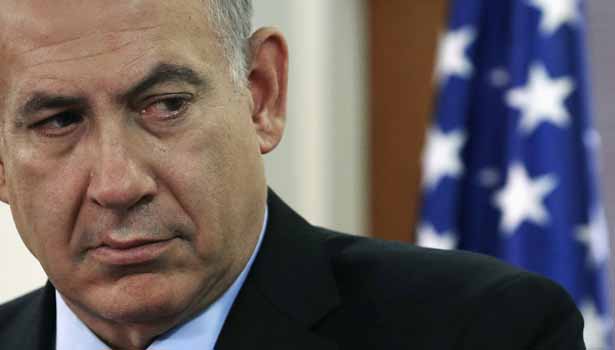Standing in the midday Israeli sun on Wednesday, Jewish and Arab students at the University of Haifa argued over a recent article which appeared in Yedioth Haifa, headlined “Islam is spreading its influence at the university.”
“Jewish students and other elements at (Haifa) University are protesting the rising Islamification on campus. They say Islamist rhetoric can be found across the institution,” Yedioth Haifa reported last Friday.
“All we want is a little bit of tolerance. We have no problem with students who enter the campus to participate in its life, but it is extreme to come with T-shirts of Azmi Bishara (the exiled Arab-Israeli Knesset member accused of being a Hizbullah agent).
“There was also a diary handed out by the Islamic Movement here with pictures of Bin Laden, the burning Trade Towers, and Hassan Nasrallah,” Sa’ar Ziv, the student’s union spokesperson, told Ynetnews.
He was heckled by activists from the left-wing Hadash party, who described his comments as “racist” and “an attempt to silence voices.”
Haifa U’s Islamic movement
Journal of hatred / Eitan Glickman
Representatives of Islamic movement’s northern faction distribute journal to Arab students at Haifa University honoring ‘great leaders of Arab nation’ Nasrallah, bin Laden Full Story
Away from the ruckus though, a few floors up in a central campus building, the Islamic Movement’s stand was quietly staffed by a few Arab students, most of them bearded, with green shirts. They did not agree to be photographed, but showed a permit from the university’s deacon allowing them to spread materials on campus.
The students denied glorifying the 9/11 attacks or Bin Laden. “Hitler was important too,” said one activist. “But mentioning him doesn’t mean you support him,” he added.
The group’s chairman, Mouad Hefeb, has recently become head of the entire Arab Student Committee at the university. Speaking to Ynetnews, Hefeb said the Islamic Movement on campus limits its activities to operating a small fund, known as IKRA.
“It’s a limited fund to aid Muslim students,” Hefeb said. “I pay towards it from my own pocket, NIS 50 a week,” he added.
But IKRA also happens to be the name of Hamas’ civilian infrastructure fund, designed to provide a cover for terror activity, according to the Israeli security website, Intelligence. Could the two IKRAs be linked?
“Ikra is the first word in the Koran,” said Hefeb, when asked whether the fund was linked to Hamas. “It’s a call to learn Islam from Allah to Muhammad. It’s a common term,” he said.
But that explanation was dismissed by Colonel (Res.) Jonathan Fighel, a senior researcher for the Institute of Counter-Terrorism, at the Interdisciplinary Center in Herzliya.
“Ikra isn’t the first word in the Koran. The first words are: Bismillah al raham al rahim (In the name of Allah the compassionate the merciful). That explanation is nonsense, and it is an attempt to deceive,” Fighel said.
“IKRA is linked to Hamas and to radical forces among Arab-Israelis, and the Northern Branch of the Islamic Movement in Israel,” he said, adding that the fund is part of a Da’wa effort (missionizing and spreading radical Islam).
Fighel outlined a number of contexts in which IKRA operated, each one linked to Hamas, Saudi Arabia, or even al-Qaeda. “IKRA is the name of a Saudi charity, part of the International Islamic Relief Organization (IIRO),” Fighel explained. “Some of this organization’s branches around the world have been suspected of aiding al-Qaeda, and have been shut down,” he added.
“In February 2004, the IDF searched the offices of an Islamic charity in Hebron, positively identified as being a Hamas fund. Among the documents recovered was a request for help from IKRA,” Fighel added.
“In August 2005, Israeli police arrested Ya’coub Abu Asab. During a Shin Bet interrogation, Abu Asab admitted to raising hundreds of thousands of dollars for Hamas in Saudi Arabia, channeling the money though two funds, one of those being IKRA,” Fighel continued.
“It’s totally clear we are talking about a charity which has a mission. It is backed by a Saudi radical madrassah and is linked to Hamas,” Fighel said.
Asked whether the presence of such a fund in an Israeli university represented a security threat, Fighel replied: “I can’t say for sure. What I can say is that these type of activities create a terror-supporting atmosphere, and this has to raise questions among Israeli-Arabs.”
He added that the reason police have not yet shut down the fund could be because “not enough judicial material had been gathered to close it.”
“We are an Islamic movement that provides funds and scholarships,” insisted Hefeb. “Our budget is decided according to our capabilities, and we don’t have a lot of money,” he said.
Source: http://www.ynetnews.com/Ext/Comp/ArticleLayout/CdaArticlePrintPreview/1,2506,L-3421344,00.html







